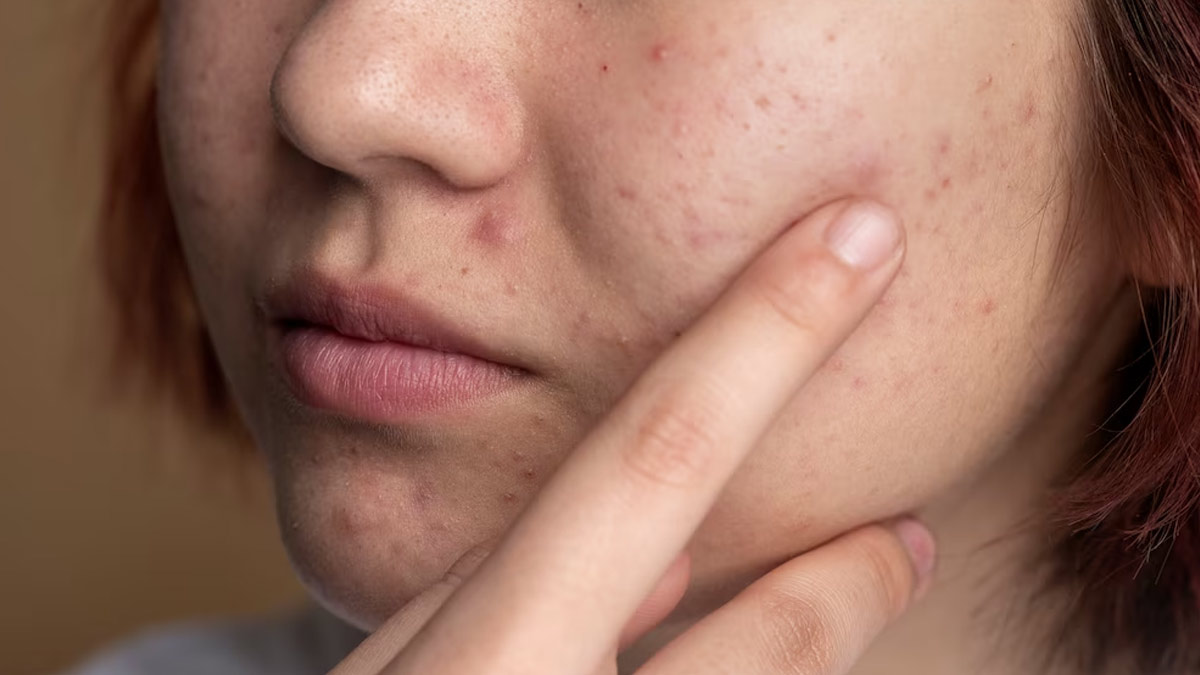
Acne-prone skin can be a real challenge to manage, and finding the right skincare ingredients to keep breakouts at bay can feel like an uphill battle. We've all experienced the frustration of waking up with a new breakout or feeling like our skin just won't cooperate. But don't worry, you're not alone! The good news is that there are plenty of skincare ingredients that can help keep breakouts at bay and promote clearer skin. We spoke to our expert Dr Smriti Naswa Singh, Consultant Dermatologist & Cosmetic Dermatologist, Fortis Hospital, Mulund, who listed six skincare ingredients you should look for.
Table of Content:-
Skincare Ingredients To Check For
So if you're ready to take your acne-fighting game to the next level, read on to discover the best skincare ingredients for acne-prone skin.

Salicylic Acid
Salicylic acid, a Beta-Hydroxy Acid (BHA), exfoliates the skin and clears clogged pores as it works. It is a great ingredient for acne-prone skin because it can penetrate deep into the pores and dissolve excess sebum, dirt, and dead skin cells. It is also anti-inflammatory, which can help reduce redness and swelling associated with acne.
This component is present in a number of skincare products, including cleansers, toners, and spot correctors. It is also available in wet wipes or acne pads to clean the skin while on the go. It's crucial to start with a low concentration and raise it gradually as your skin can handle it.
Also Read: From Over-exfoliation To Not Moisturising: 5 Skincare Mistakes You Should Avoid At Night
Benzoyl Peroxide
Benzoyl peroxide is an antimicrobial agent that kills acne-causing bacteria and helps prevent future breakouts. Additionally, it effectively reduces inflammation and redness caused by acne. It is also effective in back and chest acne.
It is commonly found in over-the-counter acne treatments, such as creams, gels, and spot correctors. Benzoyl peroxide should be used as instructed because it might dry up and irritate the skin. Dr Singh added that benzoyl peroxide allergy is also common, hence if the skin is irritated or red, stop using the agent.
Retinoids
Retinoids are a type of vitamin A that can help unclog pores and prevent acne. They work by increasing cell turnover, which can help to prevent dead skin cells from clogging the pores. It can also reduce the production of sebum, which can contribute to the formation of acne.
Retinoids are available in prescription-strength creams, gels, and serums. Dr Singh highlighted that retinoids can be drying and irritating to the skin, so it is important to start with a low concentration. This phenomenon of initial irritation due to retinoids is called ‘purging’, which in majority cases settles in 3 weeks.
Also Read: From Over-Exfoliating To Popping Acne: Here're 8 Skincare Habits That Can Worsen Your Acne
Niacinamide
Niacinamide is a form of vitamin B3 that can help regulate oil production and reduce inflammation associated with acne. It can also help to improve the skin's barrier function, which can prevent moisture loss and improve overall skin health. It helps in decreasing the size of open pores issues that happen due to active sebaceous glands in oily acne prone skin.
Niacinamide is found in various skincare products such as serums, moisturisers, and toners. It is a gentle ingredient that can be used by all skin types, including sensitive skin.

Azelaic Acid
Azelaic acid is a natural acid that can help reduce inflammation and prevent the formation of acne. It works by killing acne-causing bacteria and reducing the production of excess sebum.
Azelaic acid is available in prescription-strength creams and gels. It can be a good alternative to other acne treatments, especially for people with sensitive skin. It also has lightening properties.
Alpha-Hydroxy Acids (AHAs)
Alpha-Hydroxy Acids (AHAs) are a group of natural acids that can help to exfoliate the skin and unclog pores. They work by breaking down the bonds between dead skin cells, which can prevent them from clogging pores and causing acne.
AHAs are present in a number of skincare products, including cleansers, toners, and serums. Dr Singh added that AHAs, such as mandelic acid, are mild on the skin and suitable for all skin types. However, AHAs like glycolic acid have the potential to be irritating at greater intensities; using moisturisers after their application reduces this risk.
Bottomline
Dr Singh concluded, “All the above products like azelaic acid, AHAs, BHAs, retinoids also come in stronger strengths in chemical peel formulations which can be done as office procedures at dermatology OPD and yield faster results. They work especially well if a person has a tendency to scratch the acne or they are not able to accept any of the cream formulations.”
When purchasing skincare products look for these ingredients, so you can shop smarter and build a skincare routine that works for you. Hence, don't forget to do a patch test before trying anything new on your skin and consult a dermatologist for an expert opinion as per your skin type.
Also watch this video
How we keep this article up to date:
We work with experts and keep a close eye on the latest in health and wellness. Whenever there is a new research or helpful information, we update our articles with accurate and useful advice.
Current Version